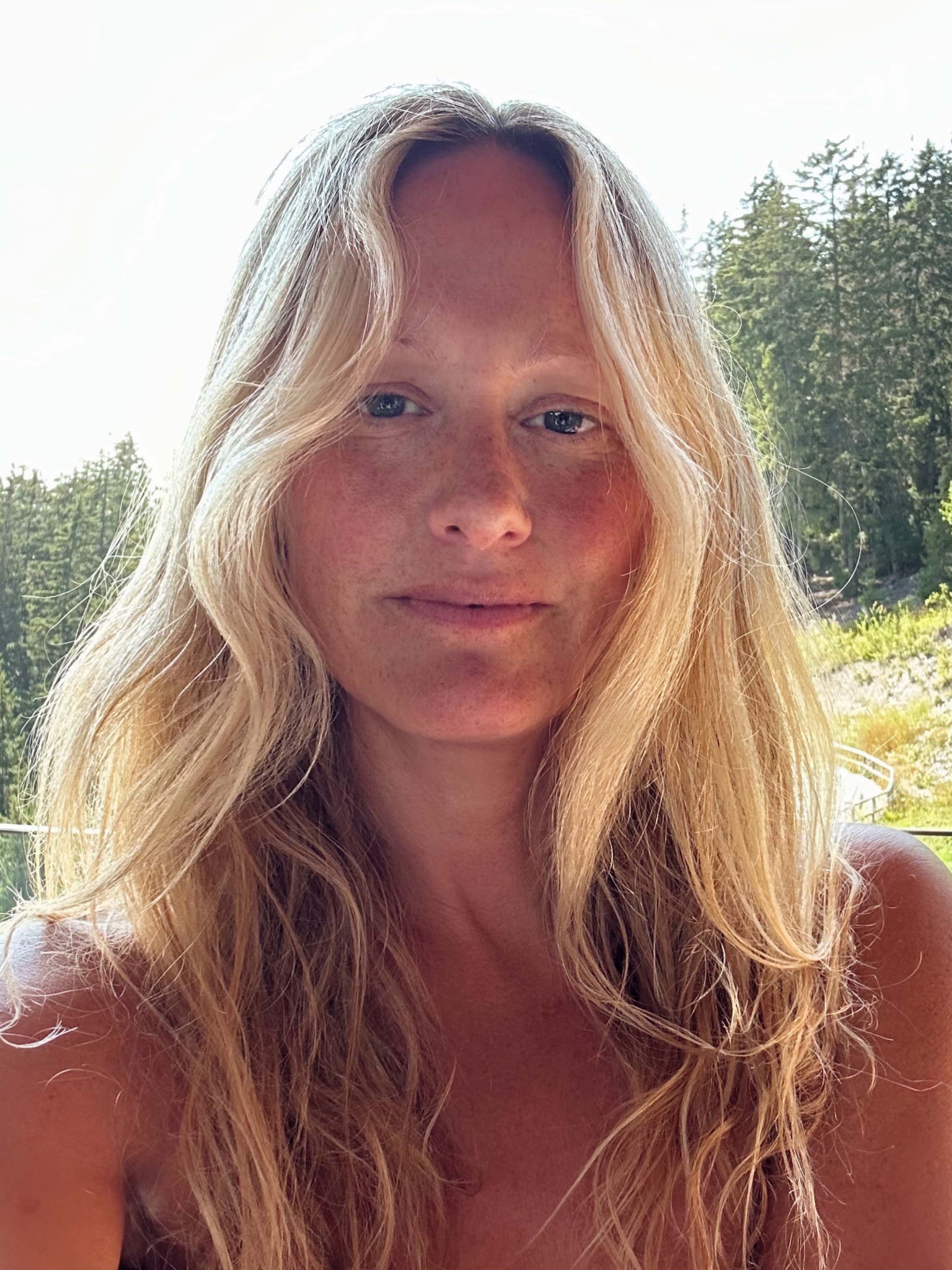Meet Dr. Rosa Vásquez Espinoza, the National Geographic explorer championing cultural preservation and female empowerment in science
Despite facing discrimination, she's a role model for women in science and conservation, advocating tirelessly for equality and representation.
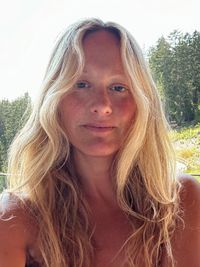
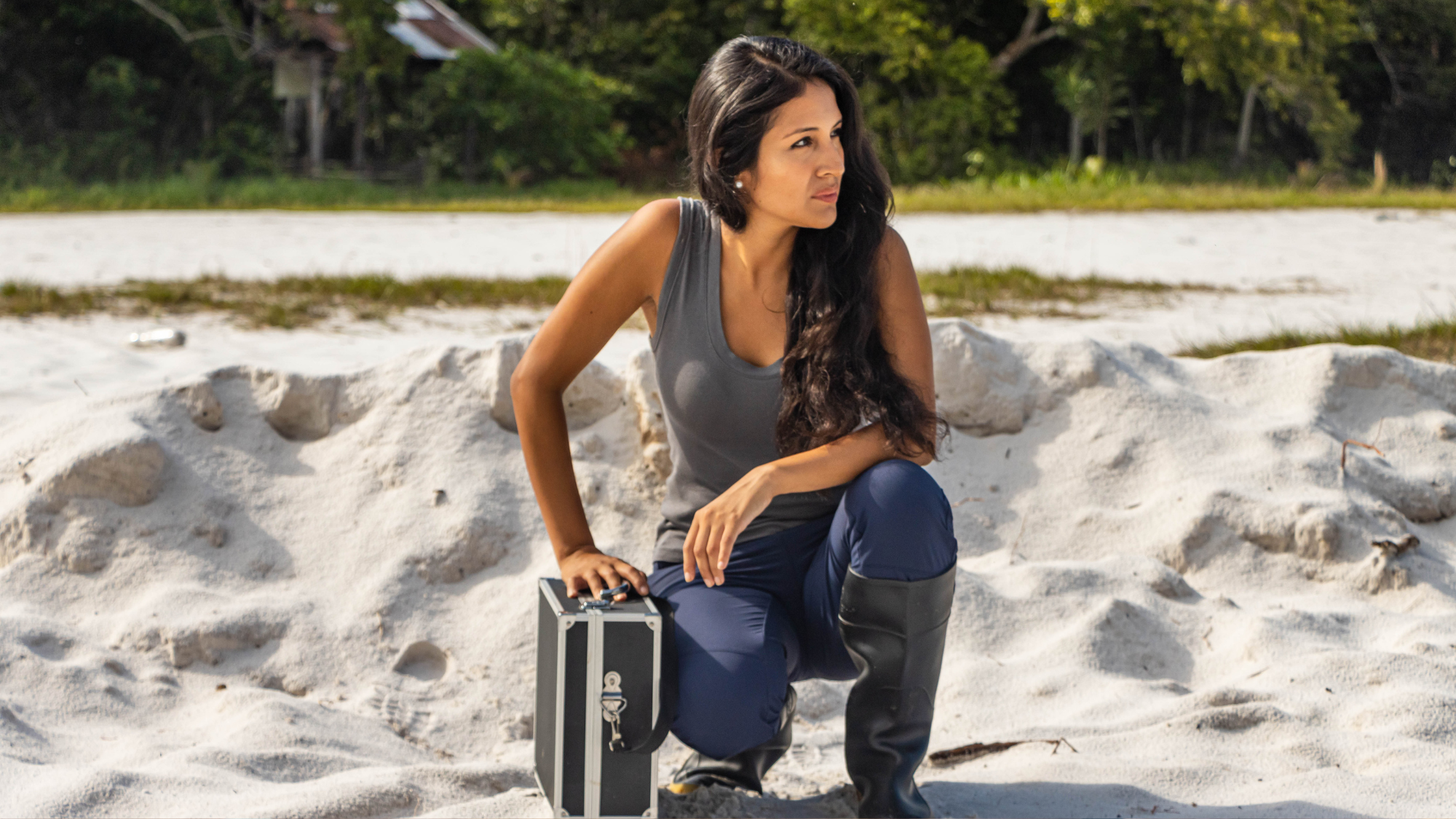
Celebrity news, beauty, fashion advice, and fascinating features, delivered straight to your inbox!
You are now subscribed
Your newsletter sign-up was successful
National Geographic explorer Dr. Rosa Vásquez Espinoza is a role model for women in science and conservation, advocating tirelessly for equality and representation of Amazonian research.
Her influence stems from her childhood, where her healer grandmother inspired her to pursue the career she's built. Combining traditional knowledge with modern science in her work, she's the founder of the Amazon Research Internacional, a centre which leads innovative research on stingless bees' medicinal honey in Peru.
Not only does her work emphasise the importance of community involvement and indigenous wisdom, but her efforts enhance biodiversity, support cultural preservation, and advocate for female representation in science and conservation. Driven by her Amazonian roots and experiences with under-resourced communities, she champions inclusive, collaborative approaches in environmental research - something Marie Claire UK has long championed.
Taking time out of her busy schedule to sit down with us, below, she shares more about the game-changing work she and her team are doing, as well as reflecting on the lack of female representation and the work she's doing to change this narrative. Through her organisation, she mentors young women and advocates for women's collaboration over competition, learning from Amazonian women the power of collective action - more on that below.
Meet National Geographic Explorer Dr. Rosa Vásquez Espinoza
Tell us about the Amazon Research Internacional?
"My experiences with resource-limited schools and communities have reinforced my belief in the necessity of inclusive and far-reaching conservation work. The willingness of people to engage in collaborative efforts, particularly with indigenous leadership, was a pivotal factor in my decision to launch the institute."
"I believe that bringing together diverse minds and perspectives, especially those deeply rooted in the affected communities, can lead to more effective and sustainable conservation strategies."
A post shared by Amazon Research Internacional (@amazonresearchint)
A photo posted by on
Who inspires you?
"In Peru, where natural medicine is a way of life, my grandmother was my greatest inspiration. She embraced her role as a traditional healer, using plants to create remedies and establish a natural pharmacy. When our family moved to the city, she didn't leave her practices behind - instead, she set up a pharmacy in our backyard, alongside the animals and vegetable garden she tended. I spent all my free time there, learning from her, as my parents were busy working."
Celebrity news, beauty, fashion advice, and fascinating features, delivered straight to your inbox!
"Although she never had a formal education, my grandmother possessed an immense knowledge of plants and their healing properties. She could take a single plant and process it in various ways to treat different ailments. Her stories and teachings about the mystical and cultural significance of these plants captivated me. Her wisdom was not just about healing but also about the deeper connection between nature and our heritage."
Her wisdom was not just about healing but also about the deeper connection between nature and our heritage
Dr. Rosa Vásquez Espinoza
A post shared by Dr. Rosa Vásquez Espinoza (@rosavespinoza)
A photo posted by on
What led you to study a PhD in Biology?
"My father's family hails from the Amazon, and during some summers, I was sent to the jungle to spend time with my cousins and uncle, experiencing life along the Amazon River. I have photos of myself at the ages of two, five, and seven in the Amazon, and although I never really thought much about it then, these experiences, along with my grandmother's influence, sparked a deep desire in me to learn more."
"In Peru at that time, there weren't clear career paths or opportunities to work in a laboratory setting that matched my interests. Recognising this, I decided to expand my horizons. I applied for graduate programs and scholarships in the United States and moved there, where I embarked on twelve years of studying biology. My journey took me to various places, including China and Beijing."
What makes you the most excited about your job?
"Leading scientific projects in collaboration with the Institute of Investigation of the Peruvian Amazon is a significant contribution to the field and my focus on the uncharted territory of analysing medicinal honey from stingless bees in Peru is a commitment to innovative research. My passion is finding medicinal solutions in nature and the collaborative approach of my work."
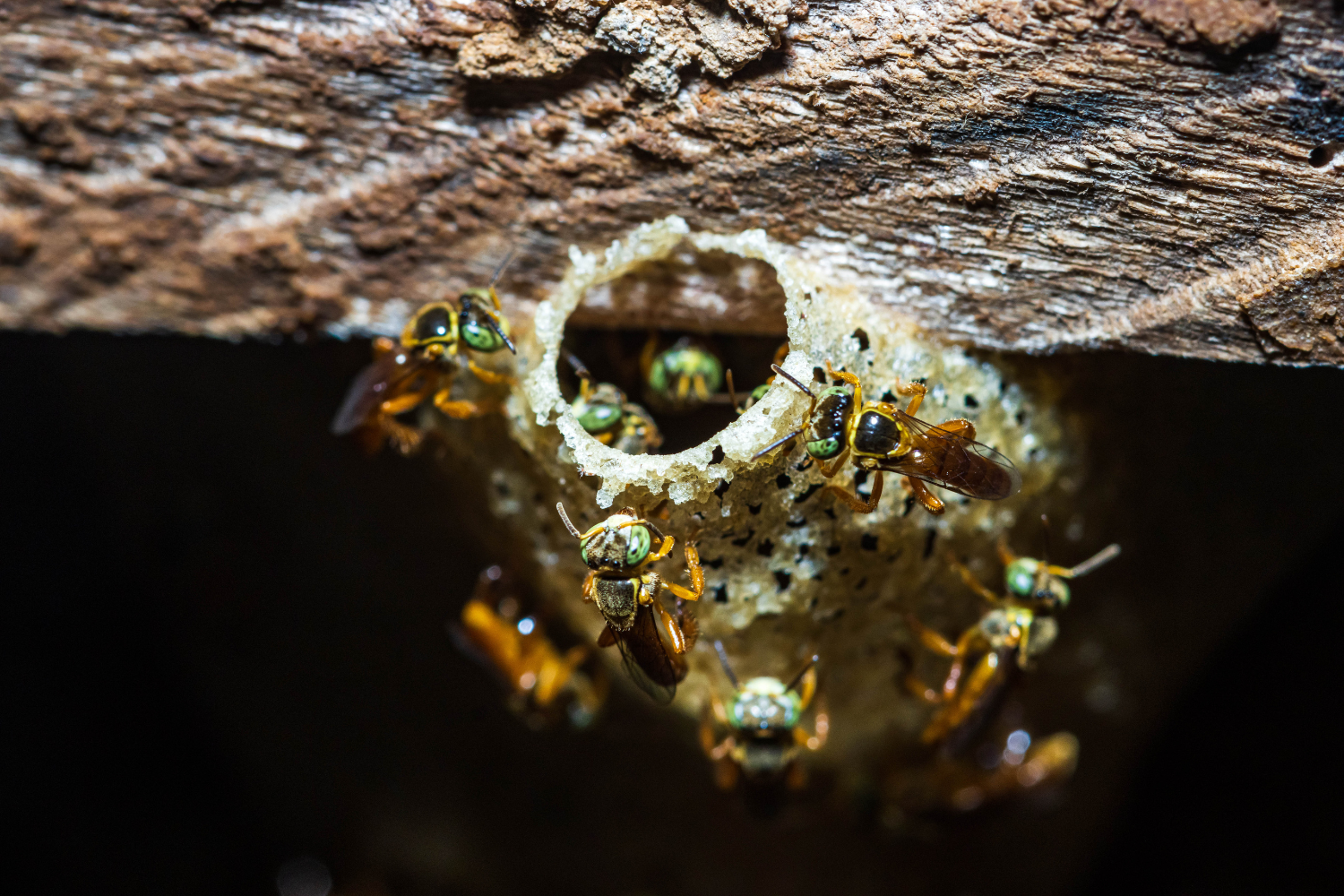
Do you feel like you need to be resilient being a woman in your industry?
"Absolutely, every step along the way, resilience is one of the most essential skills I continue to develop. As a female in the sciences and nature exploration space, I didn’t grow up with many examples of other women doing what I dreamt of doing one day. Unfortunately, that’s still the case in various instances now. I find it shocking and moving and a testament that we need to facilitate more representation of females from all backgrounds and cultures to become the face of science and exploration in all the available forms; written, TV, radio and more."
I find it shocking and moving and a testament that we need to facilitate more representation of females from all backgrounds and cultures to become the face of science and exploration in all the available forms
Dr. Rosa Vásquez Espinoza
Are there enough women in your industry?
"Not enough. The landscape is slowly changing, and more incredible women are finally entering these spaces, but we are still far from achieving a balanced ecosystem. I believe that to invite more girls to see themselves as leaders in conservation, science and science communication so they too can become the next leaders of our communities, we need to amplify the work of the outstanding female professionals who are paving the path in their fields."
The landscape is slowly changing, and more incredible women are finally entering these spaces, but we are still far from achieving a balanced ecosystem
Dr. Rosa Vásquez Espinoza
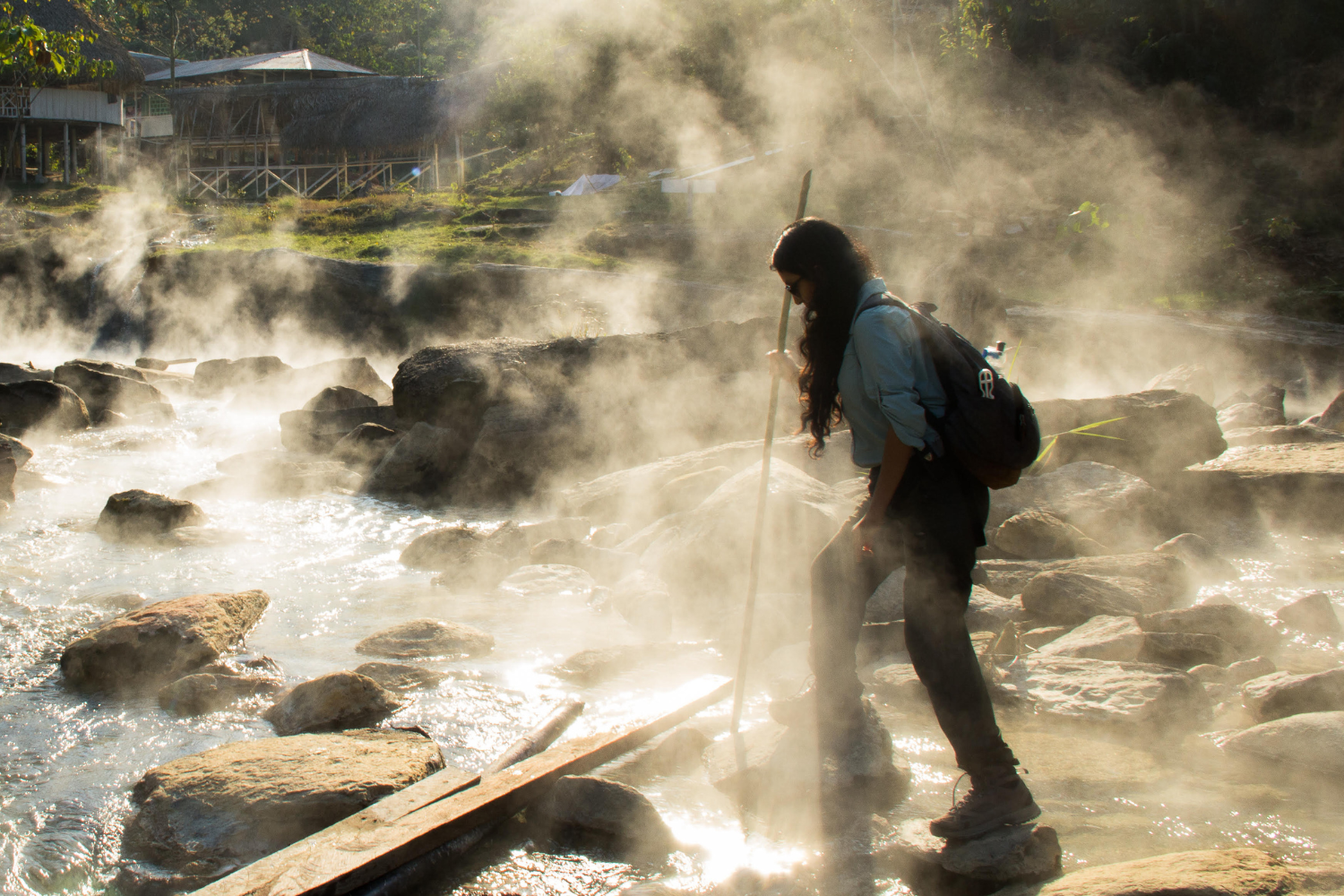
How do you help women in your role?
"Through my organisation, Amazon Research Internacional, we support women of various ages and backgrounds. Many primary, high-school, and college students approach us to learn more about starting a career in conservation and science, and how to maintain and celebrate their femininity in male-dominated fields."
"I personally take the time to mentor and coach as many students as I can. We also provide opportunities for these students to join scientific expeditions and projects, opportunities they might not typically have."
"Currently, we have five female students, aged between sixteen and 22, from three different countries participating in our conservation, science, and science communication initiatives. Additionally, one of our programs this year is focused on providing mentorship and capacity building to Amazonian women interested in sustainable entrepreneurship based on the natural resources of the Amazon."
Have you been discriminated against?
"I have faced multiple instances of discrimination throughout my career. One of the earliest and most unpleasant experiences was when a male science professor refused to interview me for a PhD position. He justified his decision by saying he had 'looked me up on Google' and concluded that my interest in professional competitive dancing would interfere with my focus on scientific research."
"Another time, a senior male colleague attempted to bully me into conducting science experiments on his behalf without any acknowledgement of my work or effort."
"Discrimination comes in various forms, but I have drawn inspiration from Amazonian traditional wisdom to learn how to deal with it positively and effectively. This approach is based on the principles of 'calm, control, and order': staying calm in unpredictable scenarios, understanding that I only control my actions and reactions, and organising my thoughts to process my emotions and grow as a leader."
What should women always do?
"Competition happens at the bottom, collaboration happens at the top. As women, we have a responsibility to foster a spirit of sisterhood and support one another. We face plenty of struggles and challenges already, and as pivotal figures in families and communities, our leadership is invaluable."
"By uniting our forces, courage, and joy, we amplify our power. Embracing this ethos of mutual support and collaboration is not just beneficial, but essential."
Competition happens at the bottom, collaboration happens at the top
Dr. Rosa Vásquez Espinoza
What is your aim?
"My aim is to unveil the lesser-known wonders of Amazonia and broaden people's understanding of its diverse and unique ecosystems - which is essential. By highlighting aspects of the Amazon that go beyond the common narratives of fires, anacondas, and jaguars, I am inviting the world to see a more comprehensive picture of this incredible region."
"I have made incredible discoveries, like the crickets with glowing heads under UV light and the unique blue fluorescent fungi - just some of the extraordinary biodiversity and the many natural marvels yet to be fully understood or documented."
"By bringing these wonders to light, I’m not only capturing the imagination of the public but also educating them about the value and fragility of these ecosystems. It's a remarkable fact that we've explored less than 1% of medicinal plants in the Amazon, especially considering the vast array of medicines and treatments derived from plants known to Western science."
What is your advice for becoming an explorer in our gardens?
"To become an explorer, start with the simplicity of stepping outside, turning off your phone, and immersing yourself in your surroundings. Exploration is a personal journey, whether marvelling at a blooming flower or connecting with nature's essence."
"Remember, nature is not just external; it resides within us. Cultivate curiosity by reading and questioning, enhancing your outdoor awareness. Embrace Animism's principle that all life is interconnected and has a spirit. Recognising this connection reminds us that protecting nature is, in essence, protecting ourselves, maintaining harmony in our actions and surroundings."
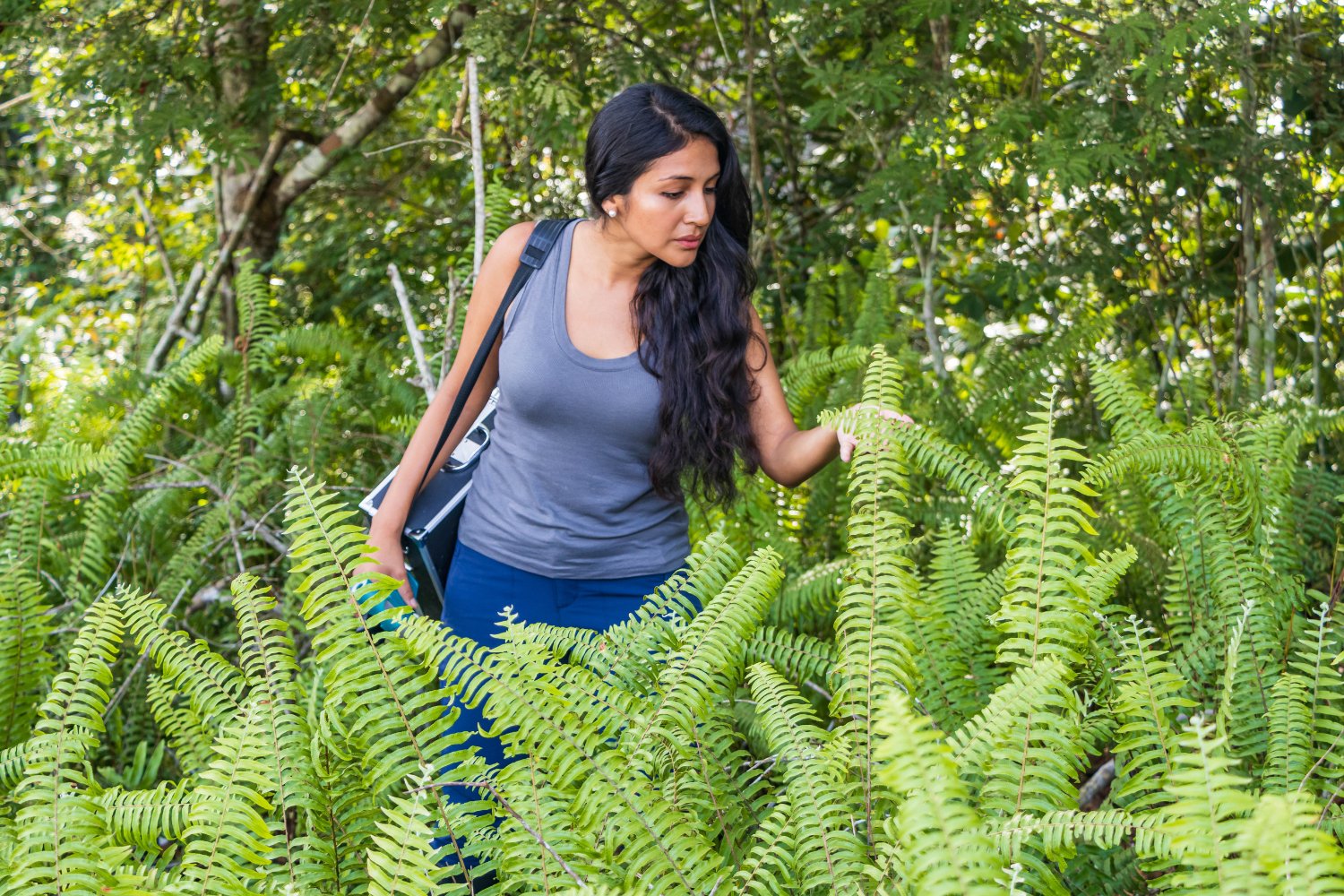
What’s your proudest moment?
"I dedicated my graduation to my grandmother who aspired to be a doctor and recently learned to read and write. Her saying, 'we became doctors,' reflects a shared triumph and the deep connection of family aspirations with personal achievements. This moment highlights the importance of my family bond and the enduring impact of their dreams and struggles on our successes."
What is your mantra?
"Be as kind as often as you can as you never know what people are going through; under promise and over deliver - I say this to the team as ultimately people can be so hard on themselves."
Best advice you’ve ever received?
"Listen more than you talk."
What’s your next big adventure?
"I’m heading to a high-altitude jungle and it’s going to be with the indigenous culture in the Amazon."
Lisa Oxenham is a trailblazing beauty editor, journalist, stylist, and creative director with over 20 years of transformative impact in the beauty industry. As the Beauty and Style Director at Marie Claire UK, she orchestrates high-profile shoots with celebrities and influencers, creating visually stunning and globally resonant content.
A passionate advocate for sustainability, Lisa serves on the Advisory Board for the British Beauty Council's Sustainable Beauty Coalition and the Media Advisory Board. She is also an ambassador for the Soil Association certification and the Amazon Research Institute. Through her "In The Loop" column, she keeps readers informed about the latest advancements in sustainable beauty and supports brands that champion environmental causes, emphasising the need for the beauty industry to reset its priorities.
Lisa's influence extends beyond words; she directs inspiring short films on sustainability and challenges in the beauty industry and is a sought-after public speaker. Recently recognised in the Who’s Who in Natural Beauty 2023, she also champions mental health and eco-conscious practices, demonstrating that glamour and environmental responsibility can coexist beautifully.
